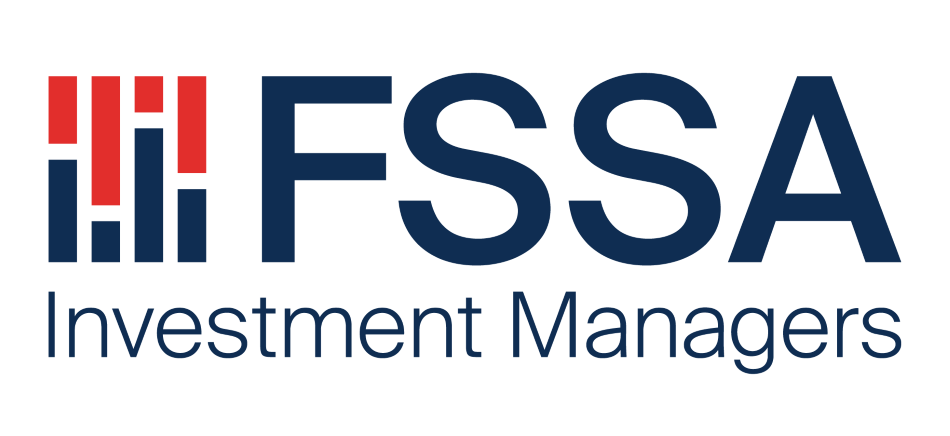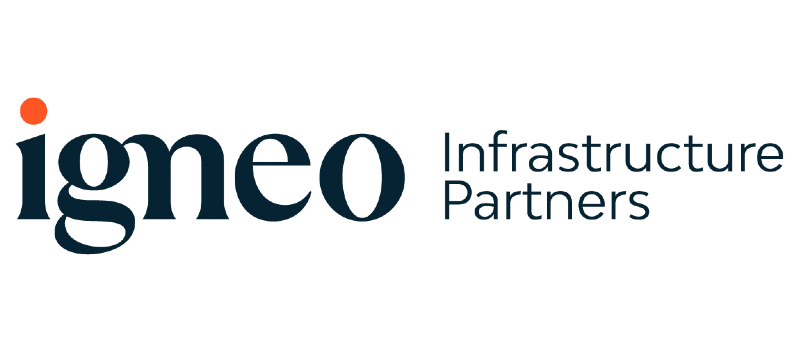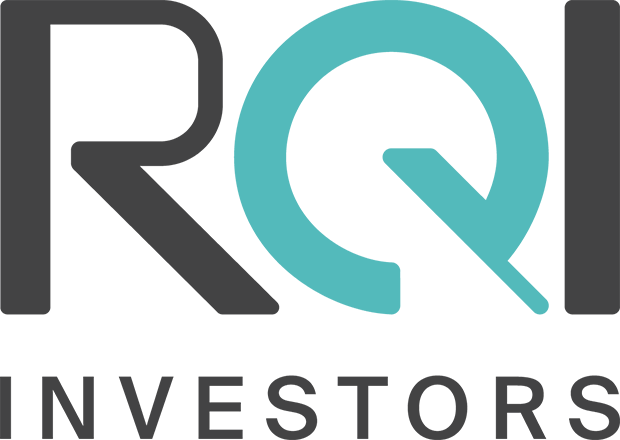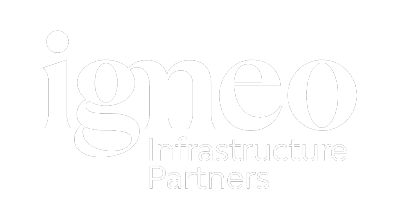Your search returned more than 50 results. The 50 most relevant results are displayed.
We believe that property fundamentals are largely driven by local property factors and have team members located in Asia Pacific, Europe and the United States.
Our Head of Global Property Securities, Stephen Hayes explains the benefits of investing in property securities and discusses property performance in a rising interest rate environment.
Our Head of Global Property Securities, Stephen Hayes, introduces the strategy and tells us more on how the strategy is predominantly invested in residential assets and logistics assets. Both of those two asset types make up over 50% of the portfolio.
Watch our Head of Global Property Securities, Stephen Hayes, discuss the key characteristics of the strategy, characterised by investments in high quality real estate within the world’s most bustling cities. Find out more about the potential benefits of investing in property securities and how the strategy is predominantly invested in the following video:
Our Head of Global Property Securities, Stephen Hayes discusses how the team are positioning the portfolio post-COVID
Investing with regard to environmental, social and governance considerations is not new to us. Our Head of Global Property Securities explains how these factors directly influence stock selection and portfolio construction.
The outlook for the global economy and financial markets looks more uncertain today than it has for a long time. Both interest rates and inflation have risen sharply. There is a growing consensus that much of the world will shortly be experiencing slowing economic growth. Understandably, investors are asking what their options are. With a wide array of asset classes available, which are best placed to offer investors resilience in the current environment, but also sustainable investment opportunities?
Consider listing property as part of real asset portfolios for long-term returns, liquidity, and inflationary hedge. This article explores these factors and emphasizes the investment potential of listed property as a complement to real asset portfolios.
From residential dwellings to offices and data centres, our Head of Global Property Securities, Stephen Hayes, shares his view on the trajectory for property in a post-COVID world.
Global Property Securities - US resi 2.0: The expanding renter opportunity | First Sentier Investors
As the renter market in the United States continues to grow, so does the opportunity for investors in a certain type of Real Estate Investment Trust.
Our Head of Global Property Securities, Stephen Hayes, highlights the global opportunity set and explains why over time, investment in greener buildings will pay off for investors.
Approximately a third of all global carbon emissions come from the real estate sector. Our Head of Global Property Securities, Stephen Hayes, compares new developments with redevelopments and highlights the opportunity set for investors in the coming decade.
As more carbon emission regulation comes in globally – as we expect it will – Real Estate Investment Trusts (REITs) with emission reduction plans are likely to be better-placed than their peers as the cost of carbon increases.
Our Head of Global Property Securities, Stephen Hayes, tells us why he is positioning his portfolios around trends such as decentralisation, the falling home ownership rate and the adoption of e-commerce.
We believe real estate securities will be supported by a global economic recovery in 2021, underpinned by highly accommodative governments and central banks and the gradual normalisation of commercial and social activity as the world is progressively inoculated against COVID-19.
Now that more than 18 months have passed since COVID-19 started sweeping the world, we have a good understanding of how the pandemic has affected real estate investments. In some ways, it has changed the game. In other ways, it has simply underlined a number of trends that were already shaping the sector.
Tap into a relatively stable investments in real assets, infrastructure, property and essential services we all rely upon
Credit portfolios with genuine Environmental Social and Governance (ESG) integration could be a canary in the coal mine for potentially difficult-to-quantify risks and opportunities, including those likely to stem from climate change and the energy transition. While governments globally move at different speeds to put in place net zero policies, ESG-focused credit investors are taking decisive, early action to reflect these factors in their portfolio allocations.
There were a number of structural trends leading up to the Covid pandemic that were all very well understood. And the pandemic has given rise to some newer emerging trends. And what is central to the majority of these trends is the rapid advancement and continued adoption of technology which is driving societal change.
Investing in property securities provides investors with an opportunity to exploit trends in various property sectors through the listed property trust market, without the significant transaction costs that typically apply when investing in direct property.
Achieving net-neutral carbon development within the listed real estate sector requires comprehensive measurement of embodied carbon emissions, the implementation of embodied carbon reduction targets within development programmes and carbon offsets.
Read regular news updates, research papers, investment strategy updates and thought pieces from our leading investment experts.
A diverse range of global, regional and sector based equity, multi-asset and fixed income investment strategies and funds
Digital transformation, cost cutting through operational efficiency, scalability and COVID-19 safety. These four themes have been key drivers in almost every industry, which has been reflected in the gravity of changes we have seen as industries have evolved. The hospitality industry is facing disruption from a new consumer trend driving an insurgency of ‘ghost kitchens’ – and this has implications for property investors.
Stabilising the climate will require strong, rapid, and sustained reductions in greenhouse gas emissions, and reaching net zero CO2 emissions.
East Cermak has over 1.1 million square foot of gross lettable area and draws on over 100 megawatts of power from three separate grids. To put its power output in perspective, it’s the equivalent of the amount of power used by 100,000 households.
Check the latest First Sentier Investors fund price and fund performance, keep track of funds performance and trends to help investment selections.
Demand has remained strong across airports and toll roads globally. This strong demand seems somewhat counter-intuitive to the uncertain economic outlook and significant cost of living pressures throughout the world.
We consider ESG risks to be factors that may place business value at risk. Companies at risk are identified using both external providers and our own internally driven research, which is based on a systematic and extensive company meeting program.
2024 was a year marked by global inflation and economic growth concerns against a backdrop of worldwide elections. As we head into 2025, volatility will remain an enduring constant.
First Sentier Investors, a leading global investment manager, is pleased to announce the appointment of Jamie Downing as the new Head of Distribution in EMEA, as the business continues to strengthen its global distribution team.
FSSA Investment Managers India equity strategies investing in one of the worlds largest and most diverse economies, carefully seeking quality companies with long term growth.
First Sentier Investors, a leading global investment manager, has today announced the appointment of Charline Jezequel and Sascha Beisheim as senior institutional business development directors.
Climate change and global warming pose systemic risks to society and the global economy. It impacts the availability of resources, the price and structure of the energy market, the vulnerability of infrastructure and the valuation of companies.
What are your thoughts on the increasing regulation risk of investing in China? Firstly, regulations are nothing new — it has always been a part of the investment equation. If we look at Hong Kong or Singapore for example, the government would introduce new regulations on the property market from time to time; and in China, the government has introduced a number of new regulations for banks and insurance companies over the years.
While the pandemic is still far from over, a number of key leading indicators point to a healthy and broad-based recovery in China. Industrial production, trade activity and retail sales have been strong; and in stark contrast to the lockdowns and travel restrictions in early 2020, domestic travel, tourism and the leisure sectors in China have sprung back to life.
First Sentier Investors announced the appointment of Ashley Conn as Chief Financial and Strategy Officer.
First Sentier Investors, a leading global investment manager, today announces that it is setting its first nature targets as a Taskforce on Nature-related Financial Disclosures (TNFD) Adopter, in the lead up to the inaugural Global Nature Positive Summit hosted in Sydney this week.
Head of Asian Fixed Income, Nigel Foo provides an outlook into 2025 for the strategy.
2024 was a good year for global listed infrastructure. Strong earnings for energy midstream and a step-change in the earnings growth outlook for utilities helped the asset class to shrug off rising bond yields and political uncertainty.
The best performing infrastructure sector was Railroads (+14%). North American freight rail operators shrugged off supply chain hold-ups to deliver very strong earnings results. Pipelines (+6%) continued to gain on the view that high energy prices and a recovering global economy would provide the sector with favourable operating conditions.
Global listed infrastructure companies outperformed both global equities and bonds in 2022. We believe the financial and economic factors contributing to this outperformance may remain in play in 2023.
The best performing infrastructure sector was Railroads (+11%), on the view that higher commodity prices would prove supportive of North American freight rail operators. Towers / Data Centres (+11%), which had underperformed in January and February owing primarily to concerns for rising rates, gained ground as investors refocused on these companies’ strong fundamentals and structural earnings growth drivers.
The two best performing infrastructure sectors for a second consecutive month were Electric Utilities (+4%) and Water / Waste (+3%). US electric utilities were supported by a positive June quarter earnings season, and a renewed focus on their longer term opportunities to invest in transmission infrastructure and renewables.
The best performing infrastructure sectors were Multi-Utilities (+13%), Electric Utilities (+10%) and Towers / Data Centres (+10%), which in previous months had lagged the broader market during a period of rising interest rates. The worst performing infrastructure sectors were Airports (+1%) and Toll Roads (+5%), as the logistical challenges associated with the rollout of coronavirus vaccines muted gains for transport stocks.
The best performing infrastructure sectors were Airports (+8%) and Railroads (+7%), as investors anticipated a medium term return to normalised passenger volumes. The worst performing infrastructure sectors were Water / Waste (-7%) and Electric / Multi-Utilities (-5%), as investors favoured higher beta sectors. Volatility in the Texas energy market, caused by unusually cold weather, also weighed on some North American utility businesses.
Leading global investment manager, First State Investments today announced the completion of its sale from Commonwealth Bank of Australia to Mitsubishi UFJ Trust and Banking Corporation, a wholly-owned subsidiary of Mitsubishi UFJ Financial Group, Inc. (MUFG), for US$2.7 billion.
In September 2023, I met more than 30 global listed infrastructure companies and stakeholders from the UK, Europe and China. The following travel diary summarises my impressions and findings from these meetings.
FSSA Investment Managers - India equities
Year to date, 34 companies have listed on the Indian exchanges raising a total of USD7.2 billion1, a figure which has been surpassed in India only twice before in the last 12 years on an annual basis. In our Monthly Manager Views in April 2021, we spoke about the initial public offering (IPO) rush that we had begun seeing in India early this year. Unsurprisingly, we have seen this frenzy continue, similar to what has been observed in many global markets.
Get the right experience for you
Your location :  Netherlands
Netherlands
Australia & NZ
-
 Australia
Australia -
 New Zealand
New Zealand
Asia
-
 Hong Kong (English)
Hong Kong (English) -
 Hong Kong (Chinese)
Hong Kong (Chinese) -
 Singapore
Singapore -
 Japan
Japan


























 United Kingdom
United Kingdom 